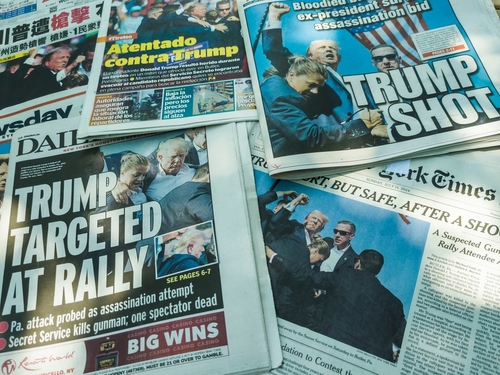The attempt on Donald Trump’s life at a rally in Butler has left the nation with a mire of unanswered questions. Details about the assailant’s motives, possible conspiracies, and the security response are obscured in ambiguity, pushing a wave of speculation. How these factors interplay with media coverage and political safety calls for closer examination as the quest for truth continues.
The Complexity of Historical Context
The assassination attempt on Donald Trump evokes memories of similar moments in American history, focusing on the unresolved nature surrounding figures like John F. Kennedy. The skepticism about Lee Harvey Oswald acting independently still fuels discussions, much like today’s discourse around Trump’s incident—the release of the JFK files by Trump reintroduced dialogues around governmental transparency and conspiracy theories.
It’s amazing how fast the story of the first assassination attempt on Trump died. As you can see here, there are so many unanswered questions. https://t.co/yv0N2rdCXd
— Chip Gibbons (@GibbonsChip) March 16, 2025
The recent attacks targeting Trump in Butler, Pennsylvania, and West Palm Beach, Florida, highlight these concerns anew. With Congressman Mike Kelly investigating these attempts, facing resistance from federal law enforcement hampers clarity about these events.
The Role of Federal Agencies and Media
The task force led by Congressman Kelly identified significant gaps in cooperation from agencies like the FBI, with their reports being inconclusive at best. Efforts to uncover the motives of Thomas Crooks, the Butler assailant, have been stalled by undisclosed communications and interviews.
Four unanswered questions about Trump assassination attempt https://t.co/XrSKVqnhma
— Washington Examiner (@dcexaminer) July 18, 2024
“They’re very good at stonewalling and dismissing people as conspiracy theorists. Well, if you answered our questions, we wouldn’t be having these different theories” – Mike Kelly.
Media engagement also faced scrutiny, notably CNN’s live broadcast during the Butler attack, which was questioned for its timing with Trump’s vice-presidential announcement. The network has stated it was a mere coincidence, but such assurances did little to quell the narrative of media bias influencing public perception.
Potential for Transparency and Future Implications
Crooks’s motivations, mental state, and murky connections to Washington, DC, remain speculative. Efforts to fully understand his actions and any underlying plans face significant roadblocks, as highlighted by investigation advocates calling for more transparency from the current administration.
Although hopes for more cooperation persist under the Trump administration, fears about concealed evidence and its implications for public safety and political dynamics indicate the potential for delays in uncovering the whole truth. The persistence of conspiracy theories in such a vacuum challenges governmental credibility and calls for accountable transparency.

